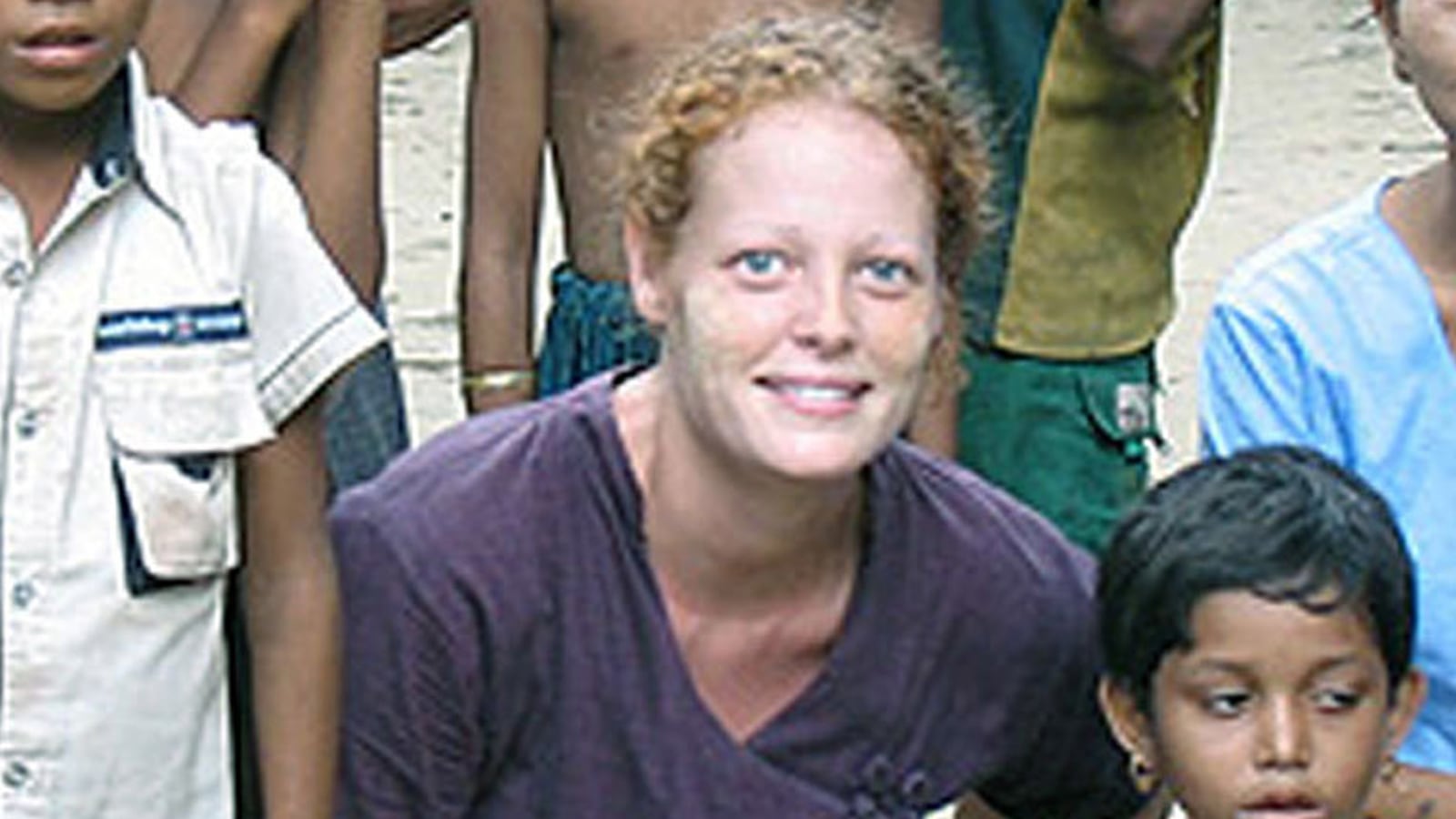As Kaci Hickox treated patients in Sierra Leone, she faced the heartbreaking task of caring for children who died in front of her. The world needs more people like her to treat Ebola in West Africa, where controlling the outbreak is of critical concern. But it is unfounded fear by an American public at minimal risk of contracting the illness that is confounding those efforts.
Threatened with a lawsuit, authorities have reversed their decision to keep Hickox, a nurse who arrived at Newark Liberty International Airport on Friday after working with Doctors Without Borders in Sierra Leone, in quarantine for 21 days and allowed her to return to her home state of Maine. New Jersey Gov. Chris Christie’s Twitter feed reported that her transfer and further monitoring would be coordinated by the two states.
Hickox had spoken critically of her treatment following her arrival in the United States in an essay for the Dallas Morning News. “This is not a situation I would wish on anyone, and I am scared for those who will follow me,” she wrote. She went on to describe a mistaken diagnosis of fever, poor communication, and eventually being stuck in a tent outside University Hospital in Newark. Initial blood tests have been negative for Ebola.
In a statement, Gov. Paul LePage outlined the steps Maine would be taking upon Hickox’s arrival from New Jersey. “Upon the health-care workers’ return home, we will follow the guidelines set by the U.S. Centers for Disease Control for medical workers who have been in contact with Ebola patients,” he said. Then he took it a step further:
“Additionally, we will work with the health-care worker to establish an in-home quarantine protocol to ensure there is no direct contact with other Mainers until the period for potential infection has passed. We will help make sure the health-care worker has everything to make this time as comfortable as possible.”
Though clearly much more pleasant than a tent without shower or television, the ongoing confinement Hickox will be undergoing in her home exceeds the recommendations for asymptomatic people returning home from West Africa. Given that LePage is locked in a tight race for reelection, it is perhaps unsurprising that he would opt for a more conservative approach in the face of mounting concern about the impact of Ebola on American public health. (Requests for additional comment from the Maine Centers for Disease Control were not returned.)
Hickox had been placed in quarantine in Newark under a new policy for New York and New Jersey enacted after a doctor in New York City came down with the illness within days of his return from Guinea, where he also was working Doctors Without Borders.
While the political underpinnings of the decisions made by various governors (including the governor of Illinois) may be understandable, they do little to protect public health. Despite the statements of certain pundits, Ebola does not become airborne, and an asymptomatic patient poses minimal risk to the public. Comments from members of the New York media notwithstanding—including those who would slander a courageous man who risked his safety to care for suffering people in Africa by calling him “Dr. Ebola”—Dr. Craig Spencer, the physician hospitalized at Bellevue Hospital with the disease, put nobody at particular risk when he rode the subway the night before he came down with a fever.
Indeed, public condemnation and overreaction by state authorities may serve only to make the Ebola outbreak worse. As he appeared on the Sunday talk shows, Dr. Anthony Fauci, director of the National Institute for Allergy and Infectious Diseases, addressed this problem.
“Guidelines regarding how you handle people coming back should always be based on the science, and the science tells us that people who are asymptomatic do not transmit,” Dr. Fauci said on Fox News Sunday.
“That doesn’t mean we’re cavalier about it,” he added, “but that means there are other steps that you can protect American people based on the scientific evidence that does not necessarily go so far as to possibly have unintended consequences of disincentivizing health-care workers. The best way to protect us is to stop the epidemic in Africa, and we need those health-care workers.”
By joining New York, New Jersey, and Illinois, Maine sends the wrong message, as do those who treat people like Dr. Spencer as pariahs rather than heroes. These reactions are precisely what concerned Hickox in her essay.
“I am scared about how health-care workers will be treated at airports when they declare that they have been fighting Ebola in West Africa,” she wrote. “I am scared that, like me, they will arrive and see a frenzy of disorganization, fear and, most frightening, quarantine.”
Whatever fear Hickox faced as she tried to control the fevers and seizures of the sick and dying, it is her fears about how her colleagues will be treated when they return home that appear to be coming true.





